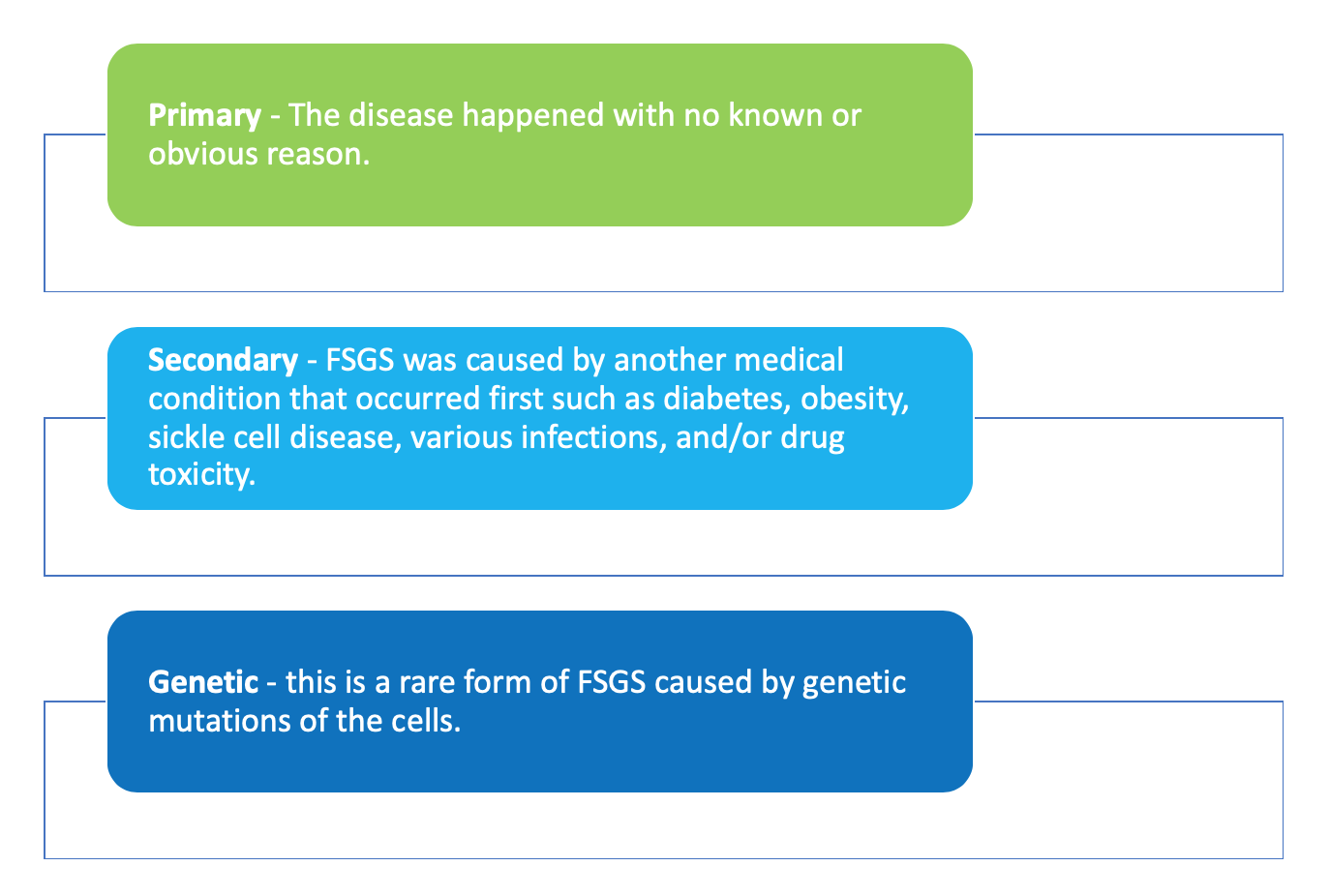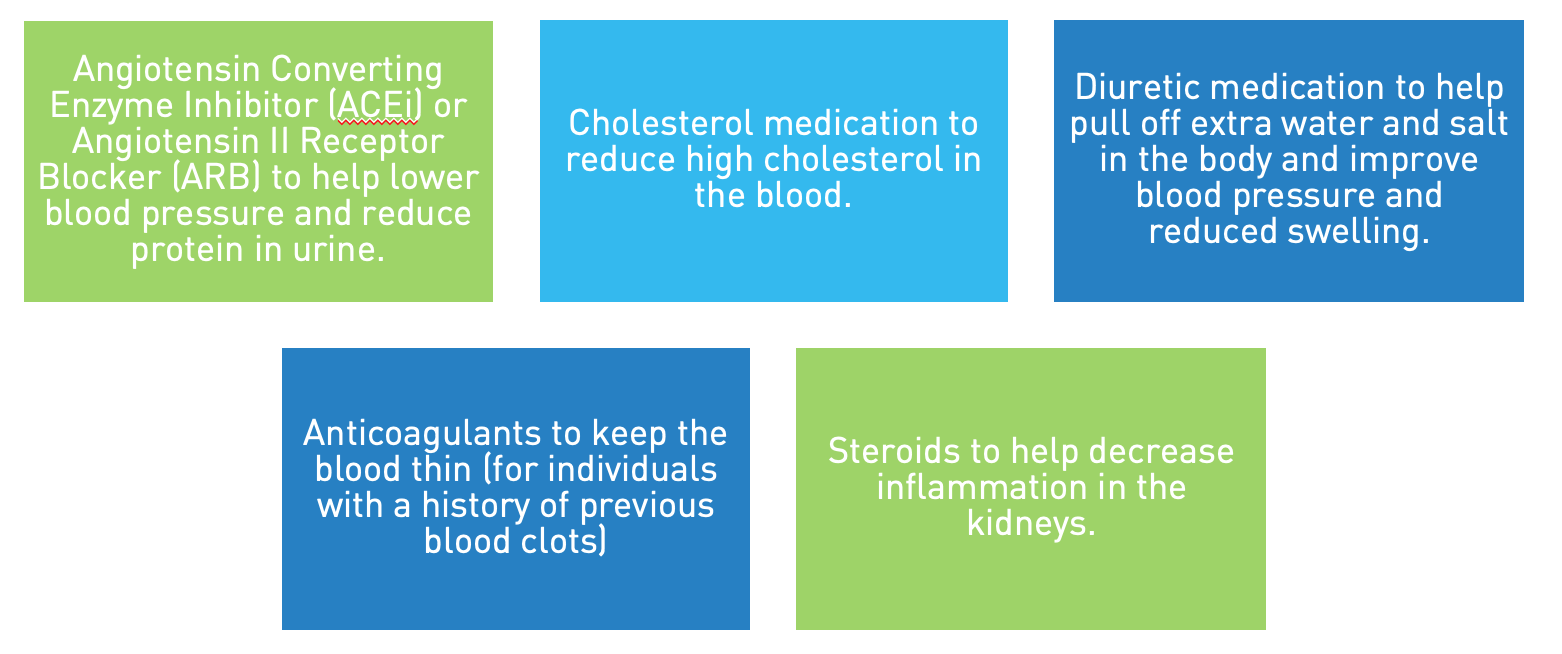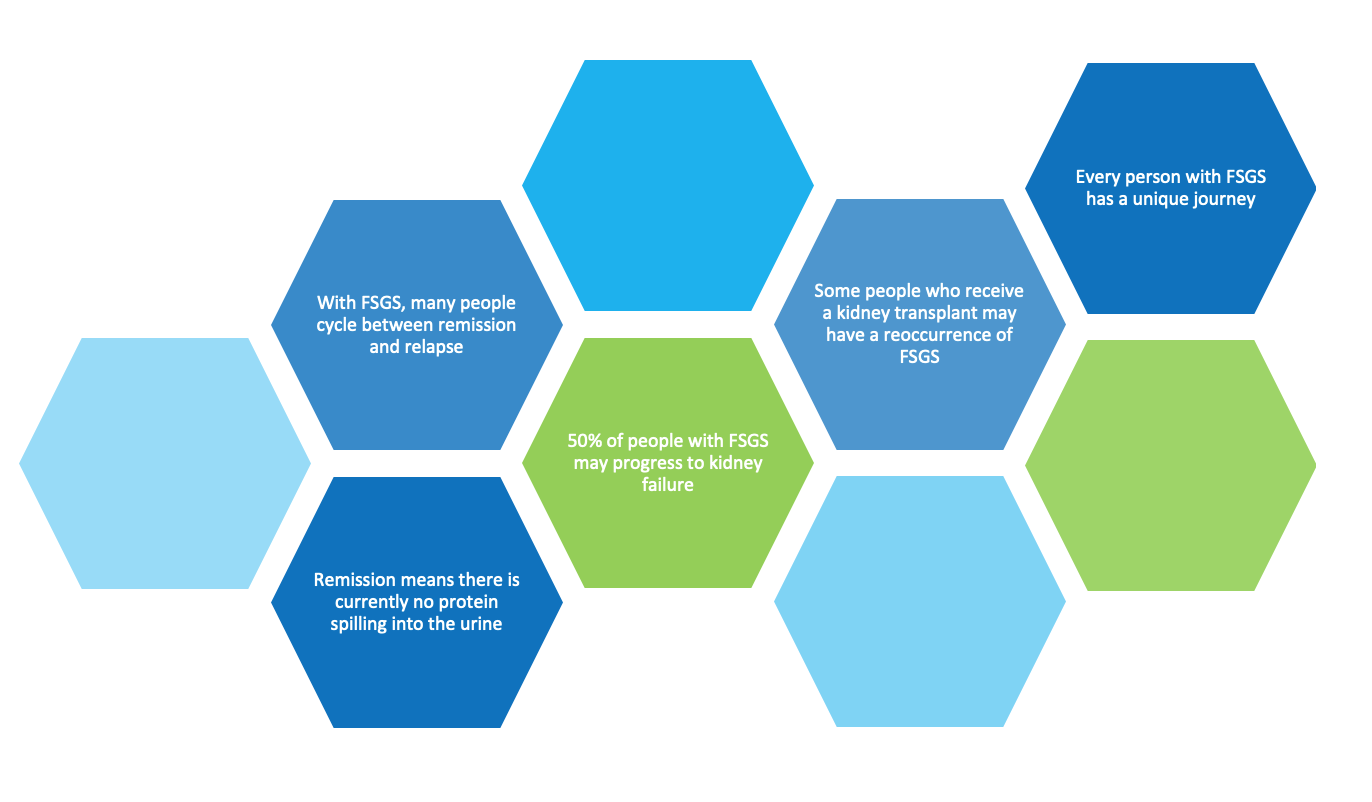What is FSGS?
Many diseases and conditions can affect your kidney function by attacking and damaging the glomeruli. Glomeruli are the tiny filtering units inside your kidney where blood is cleaned of wastes and toxins. These diseases and conditions are called glomerular diseases and can have many different causes. Focal segmental glomerulosclerosis (FSGS) is a type of glomerular disease and results in scarring (sclerosis) in your kidney. You may begin to feel sick, experience swelling, have foamy urine and feel rundown due to the build up of toxins in your body. Only some glomeruli are affected, but over time FSGS can lead to kidney failure where dialysis or a kidney transplant is required.
Focal segmental glomerulosclerosis (FSGS) is a BIG word. What exactly does this mean? Let’s break it down:
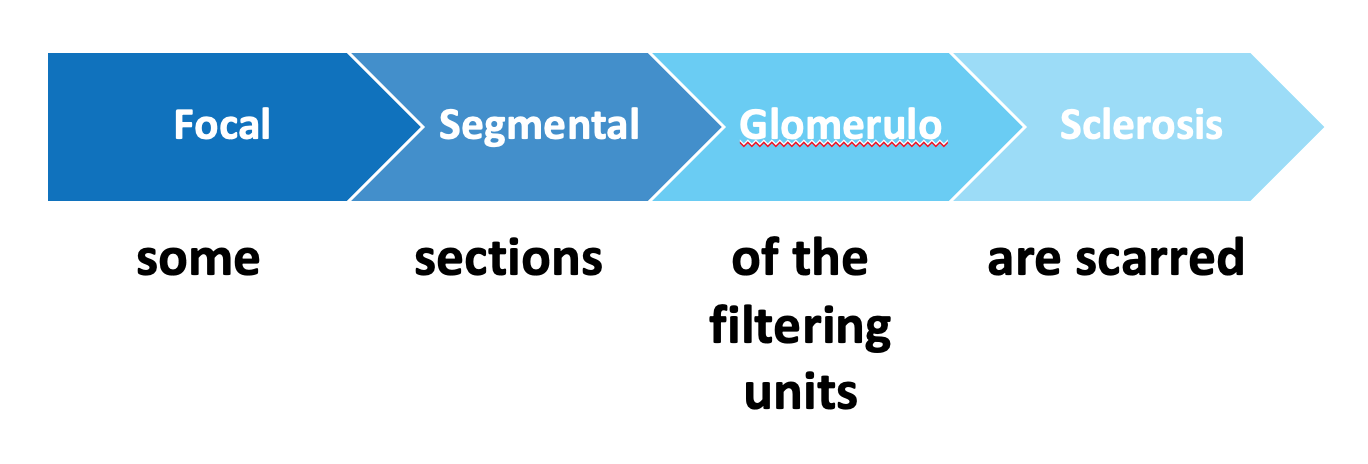
What causes FSGS?
There are 3 types of FSGS- Primary, Secondary, and/or Genetic.
Who can get FSGS?
FSGS occurs more frequently:
- In males than in females
- It is more frequently diagnosed in adults than in children
- It is most prevalent in adults age 45 and older
- Most common in people of African American descent
What are the symptoms of FSGS and how will I know if I have it?
Many people with FSGS have no symptoms at all. When symptoms are present the most common include:
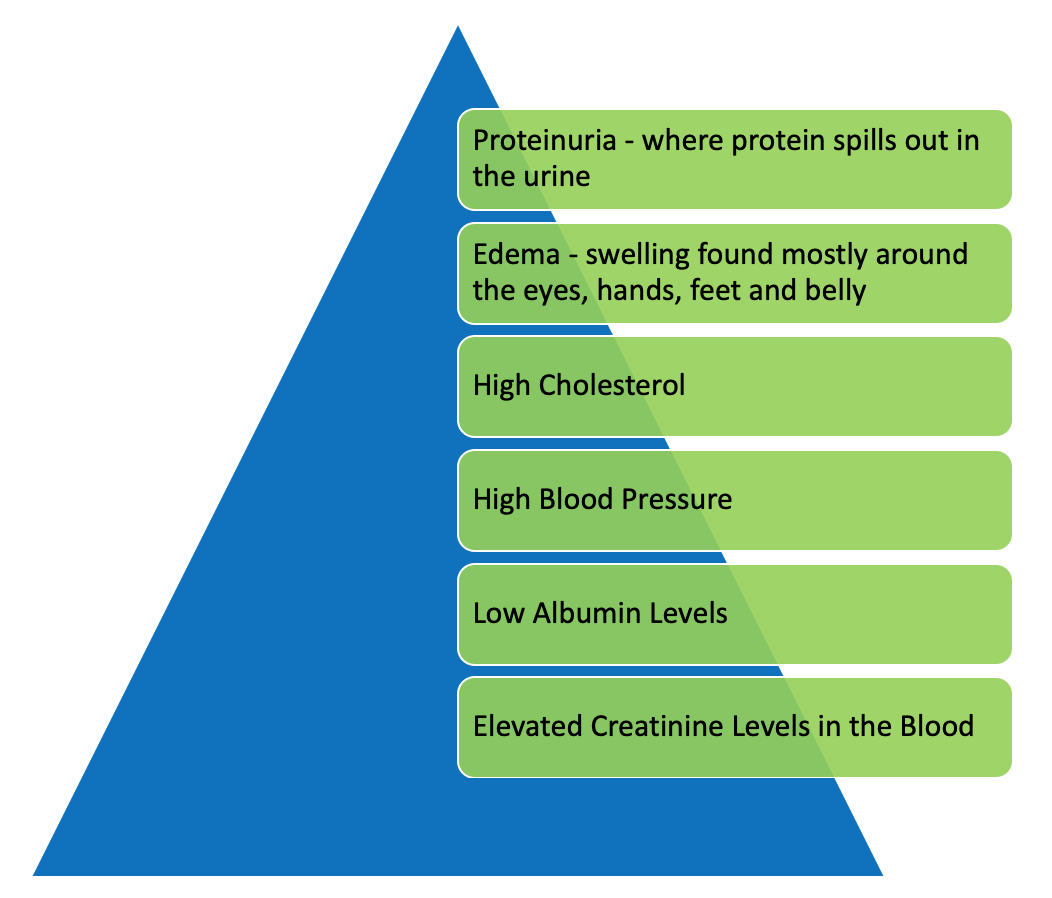
How is it Diagnosed?
If your healthcare provider suspects FSGS, they will review your medical history and order some tests such as:

Are there medications that I can take to help relieve the symptoms that I have?
Are there lifestyle changes I will have to make?
Yes, there are some lifestyle modifications that can help support healthy kidneys:
- Stop smoking
- Follow a low sodium / low protein diet
- Be Active
- Avoid medications that can harm kidneys such as NSAIDS
- Maintain a healthy weight
- Take daily vitamins (such as Vitamin D)
Goals of treatment:
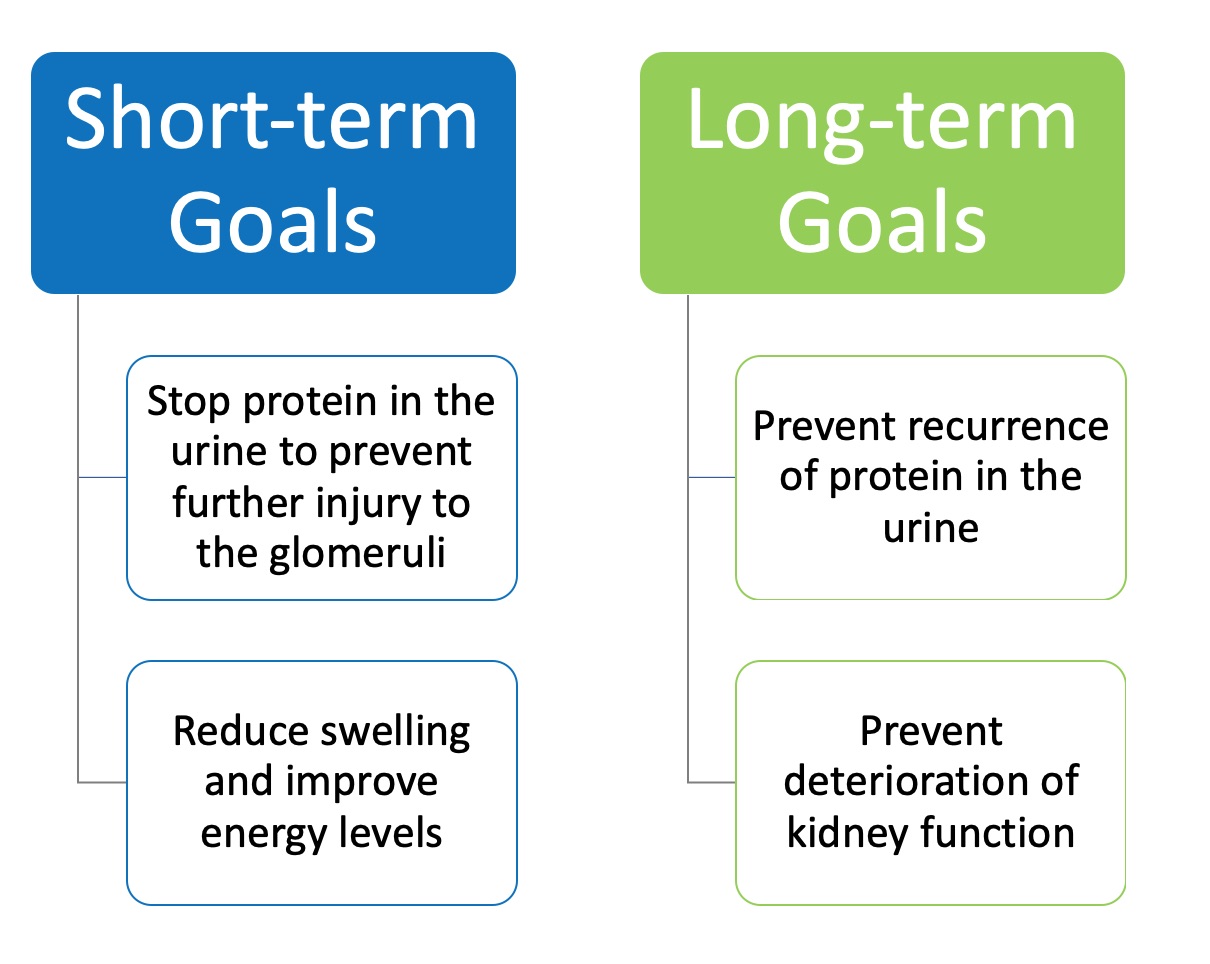
What happens if FSGS progresses to kidney failure?
There are two treatment options for kidney failure. Together, you and your healthcare provider will discuss which treatment option is best for you.
The FSGS journey is unique for each patient
Close follow-up care with your healthcare provider is extremely important to help maintain the health of your kidneys.


